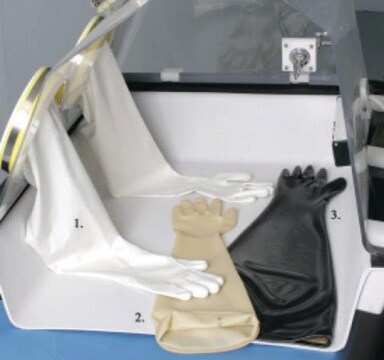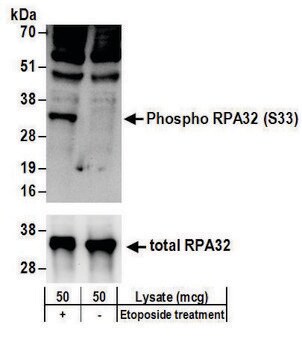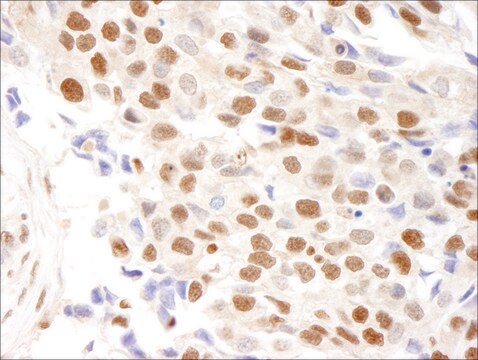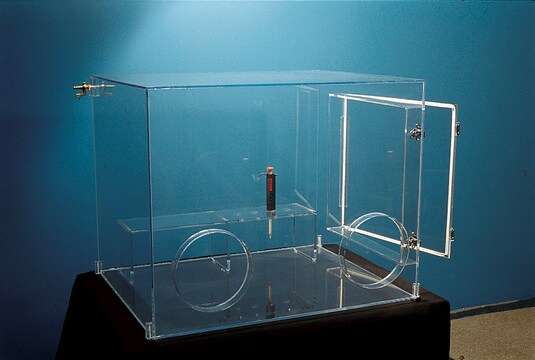PLA0071
Rabbit anti-Phospho RPA32 (S4/S8) Antibody, Affinity Purified
Powered by Bethyl Laboratories, Inc.
Synonym(e):
32kDa, REPA2, RF-A protein 2, RP-A p32, RP-A p34, RPA32, replication factor A protein 2, replication protein A 34 kDa subunit, replication protein A2, replication protein A2 (32kD)
About This Item
Empfohlene Produkte
Biologische Quelle
rabbit
Qualitätsniveau
Antikörperform
affinity purified immunoglobulin
Antikörper-Produkttyp
primary antibodies
Qualität
Powered by Bethyl Laboratories, Inc.
Speziesreaktivität
human, mouse
Methode(n)
immunocytochemistry: 1:500-1:5,000
immunohistochemistry: 1:500-1:2,000
immunoprecipitation (IP): 2-10 μg/mg
western blot: 1:2,000-1:10,000
Hinterlegungsnummer
NP_002937.1
Versandbedingung
wet ice
Lagertemp.
2-8°C
Posttranslationale Modifikation Target
phosphorylation (pSer4/pSer8)
Angaben zum Gen
human ... RPA2(6118)
Allgemeine Beschreibung
Immunogen
Biochem./physiol. Wirkung
Physikalische Form
Sonstige Hinweise
Haftungsausschluss
Sie haben nicht das passende Produkt gefunden?
Probieren Sie unser Produkt-Auswahlhilfe. aus.
Lagerklassenschlüssel
12 - Non Combustible Liquids
WGK
nwg
Flammpunkt (°F)
Not applicable
Flammpunkt (°C)
Not applicable
Analysenzertifikate (COA)
Suchen Sie nach Analysenzertifikate (COA), indem Sie die Lot-/Chargennummer des Produkts eingeben. Lot- und Chargennummern sind auf dem Produktetikett hinter den Wörtern ‘Lot’ oder ‘Batch’ (Lot oder Charge) zu finden.
Besitzen Sie dieses Produkt bereits?
In der Dokumentenbibliothek finden Sie die Dokumentation zu den Produkten, die Sie kürzlich erworben haben.
Unser Team von Wissenschaftlern verfügt über Erfahrung in allen Forschungsbereichen einschließlich Life Science, Materialwissenschaften, chemischer Synthese, Chromatographie, Analytik und vielen mehr..
Setzen Sie sich mit dem technischen Dienst in Verbindung.








